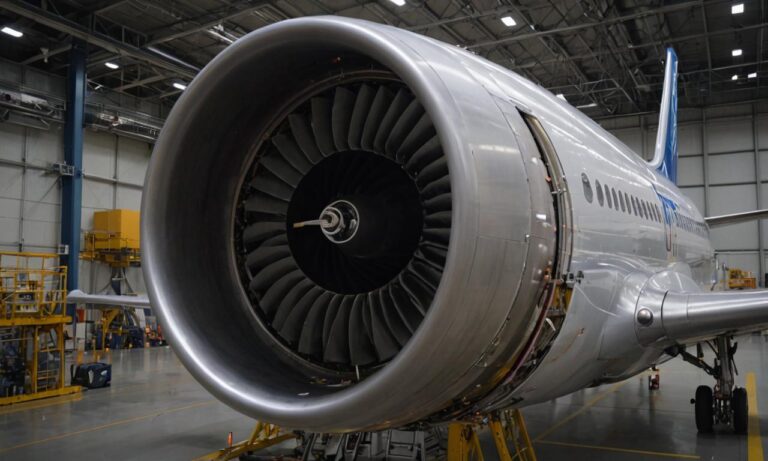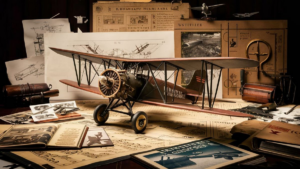The Boeing 737-800, a widely used aircraft in commercial aviation, is equipped with powerful engines that contribute to its efficiency and reliability in flight. In this article, we delve into the specifics of the engines powering the Boeing 737-800 and their significance in the realm of modern aviation.
Overview
The Boeing 737-800 is typically powered by two engines, each providing thrust necessary for takeoff, cruising, and landing. These engines are crucial components of the aircraft, ensuring safe and efficient operation throughout the flight.
Engine Specifications
The engines commonly used on the Boeing 737-800 are the CFM56-7 series, manufactured by CFM International, a joint venture between General Electric and Safran Aircraft Engines. These high-performance engines are renowned for their reliability, fuel efficiency, and low maintenance requirements.
The CFM56-7 engines feature advanced technology, including a high-pressure compressor, annular combustors, and a two-stage high-pressure turbine. These components work together seamlessly to generate the necessary thrust for the aircraft while maximizing fuel efficiency.
Performance
The CFM56-7 engines offer impressive performance capabilities, delivering up to 27,300 pounds of thrust each. This robust power output enables the Boeing 737-800 to operate efficiently across various flight profiles, including short-haul and long-haul routes.
Furthermore, these engines are designed to operate reliably in diverse environmental conditions, ensuring consistent performance regardless of weather or altitude. This reliability is essential for maintaining flight schedules and passenger satisfaction.
Efficiency
One of the key advantages of the CFM56-7 engines is their fuel efficiency, which is critical for airlines seeking to reduce operating costs and minimize environmental impact. These engines incorporate advanced technologies, such as high-bypass turbofans and optimized airflow designs, to maximize fuel efficiency without compromising performance.
Additionally, the CFM56-7 engines undergo rigorous testing and optimization processes to ensure they meet stringent fuel efficiency standards set by regulatory authorities worldwide.
The engines powering the Boeing 737-800 play a vital role in its operation, providing the thrust necessary for safe and efficient flight. With their advanced technology, performance capabilities, and fuel efficiency, the CFM56-7 engines exemplify the pinnacle of modern aviation engineering.
Reliability
Aside from performance and efficiency, reliability is a paramount factor in the design and operation of aircraft engines. The CFM56-7 engines are celebrated for their exceptional reliability, which is a cornerstone for ensuring safe and smooth flights. This reliability is a result of rigorous testing, quality control measures, and continuous maintenance protocols implemented by both manufacturers and airlines.
Maintenance
Maintenance of aircraft engines, including the CFM56-7 series, is a highly specialized and regulated process. Airlines follow strict maintenance schedules outlined by aviation authorities to ensure the engines remain in optimal condition. Regular inspections, component replacements, and overhauls are conducted to prevent unexpected failures and to prolong the lifespan of the engines.
Environmental Impact
Reducing the environmental footprint of commercial aviation is a growing concern for both airlines and regulatory bodies. While fuel efficiency directly impacts environmental impact by reducing carbon emissions, engine manufacturers are also exploring alternative fuels and technologies to further mitigate the industry’s environmental footprint. The development of sustainable aviation fuels and advancements in hybrid propulsion systems are among the initiatives aimed at addressing this challenge.
Frequently Asked Questions
| Question | Answer |
|---|---|
| Are the CFM56-7 engines only used on the Boeing 737-800? | No, while the CFM56-7 engines are commonly used on the Boeing 737-800, they are also utilized on other aircraft models, including the Boeing 737 Classic series. |
| How often do the engines require maintenance? | The maintenance intervals for the CFM56-7 engines vary depending on factors such as flight hours and cycles. However, airlines typically adhere to maintenance schedules recommended by the engine manufacturer and aviation authorities. |
| What measures are taken to ensure the reliability of the CFM56-7 engines? | The reliability of the CFM56-7 engines is ensured through comprehensive testing during development, stringent quality control processes during manufacturing, and continuous monitoring and maintenance throughout their operational lifespan. |
See also:






